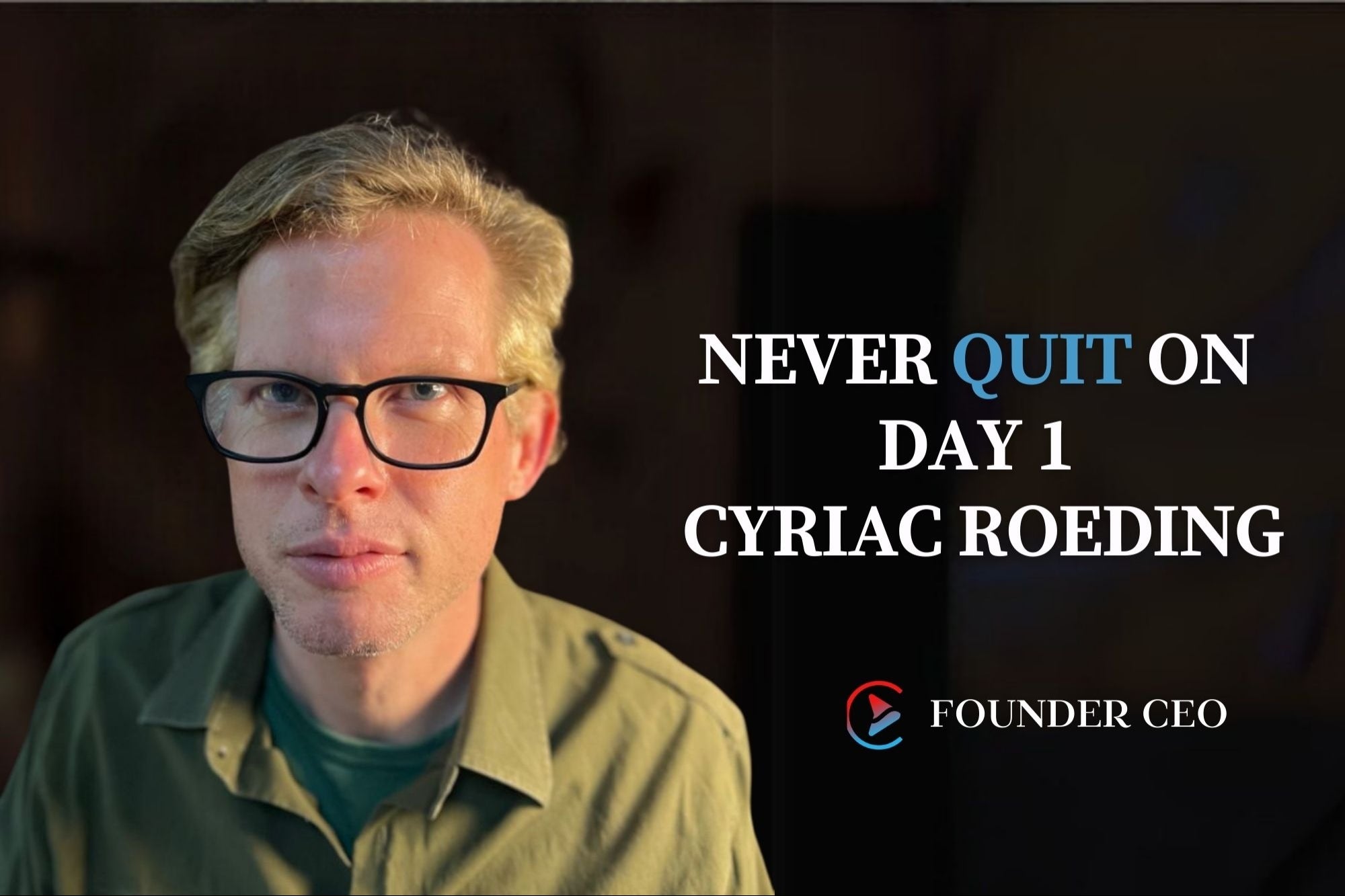The 4 Reasons Why My Startup Failed Sometimes you have to know when to walk away.
By Roger Huang
This story originally appeared on FounderDating
Getting involved with startups requires a healthy amount of delusion. It's usually why you're the last person to know that your startup is dying. That didn't happen for me. When I finally made the phone calls to thank everybody for their involvement, it was with cold sobriety.
Every good story has a context to it, and this is mine. I started my first startup, ThoughtBasin, while I was still in university at McGill. I juggled economics courses, a part-time job at a pharmaceutical firm and trying to jump-start ThoughtBasin at the same time.
At the beginning, I had nothing more than a co-founder, a set of ideals and something that vaguely resembled a good idea. I hadn't even thought through how we were going to get so many students in the first place. The economics of it all collapsed once you thought about how it expanded beyond one university. I didn't think about it because I was doing all of the work, and I figured everything would work itself out. It never occurred to me that it would take more people than me to do this thing, and that no, a founder doing all of the work for free is not something that can go on forever.
Related: 5 Signs Your New Business Venture Will Fail
Time is money: You have a set of opportunities you are giving up to work on your own thing. I've tried to never forget that. Paul Graham is on record as saying that you should do things that don't scale -- but spare a thought for how they will, and remember to value your own time. ThroughtBasin didn't survive long enough to do that. Here are the biggest mistakes I made:
1. I hired way too many people and didn't know how to communicate to them.
I thought the larger your team was, the more successful you were. Huge mistake. I ended up chairing meetings with more than 15 team members, each one of them as confused as I was about their role in the startup.
Takeaway: Hire great, top-caliber people with a purpose in mind. I approached recruitment like a game, and it killed my startup.
2. I had no idea of what could be scaled and what couldn't.
I forgot that time is money. Our sales model for ThoughtBasin was turning student ambassadors into salespeople and giving them a commission on each case placed on our platform. There was no way we would have scaled that, so I resolved to work even harder. I somehow hoped this would inspire everyone around me to join in once they realized my bloodshot eyes and somber mood was just a reflection of how hard you needed to work for this thing.
But none of the work I was putting in was actually achieving any results -- in fact, they often made the situation worse. I was applying for incorporation, and shopping for lawyers before I even had a cent of profit, distracting the rest of the team. I was stressing myself out, telling myself that I had to work even harder to make it, so I made more work for myself and others. In truth, I wasn't working to build anything. I was working, because I thought I should be working more.
Related: 6 Stories of Super Successes Who Overcame Failure
Takeaway: Pride yourself on working smart, not hard. Move your startup forward, but don't forget that the startup's most important parts are the people inside -- yourself included. A startup needs founders who care deeply about what they do -- but being a martyr will lead you and your startup off a cliff. Sleep, eat and exercise. Your startup depends on a healthy you.
3. I forgot to take care of myself.
That whole forgetting time is money thing? It degenerated even further. I started seeing faults in the startup as my own fault and resolved to work even harder -- trying to will the team around me to greater heights by spending huge amounts of my energy.
Takeaway: Take care of yourself: your startup needs you at your best.
4. I was a slow learner who argued a lot.
I spent a lot of time on work, sure I knew things. The truth was, I didn't. If I'd spent more time listening, and correcting mistakes, rather than arguing and committing to them, ThoughtBasin would have been in a much stronger position. A startup is a nimble experiment, a race to learn as much as you can about your users, market and the demand out there for new innovations. Refusing to learn quickly is a death sentence for any David trying to take on a whole raft of Goliaths.
Takeaway: Listen more, argue less and never turn down an opportunity to learn.
In the end, my team and I realized we weren't the ones to execute on this particular idea -- and there was no shame in that. We could spend our time building out other ventures and learning other markets. That's why when I made the calls that ended ThoughtBasin, I was saddened but very rational about the whole process. I had internalized all of these lessons and wrote about them.
If there's one takeaway I want to leave you with it is be deluded. Aim to build great things. Take the time to learn from your mistakes. You'll have room to make a lot of them, so get ready to learn and move on from them, and make something out of each one. Entrepreneurship is one the quickest platforms you can use to learn things about yourself and the world around you: take advantage.
Related: 3 Fears That Halt the Entrepreneurial Journey
This article has been edited for brevity and clarity.









